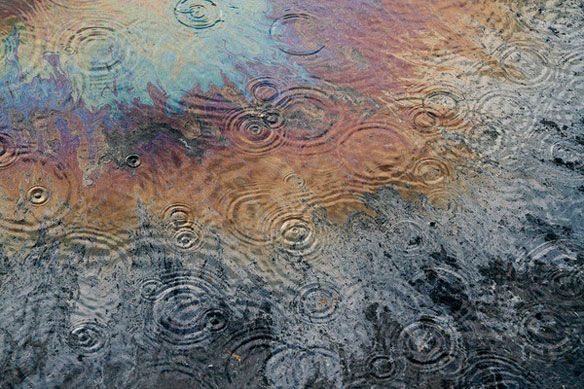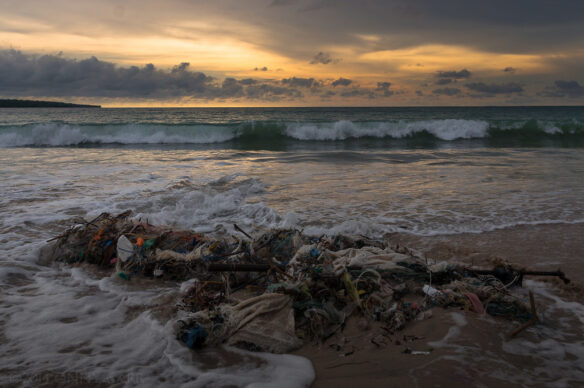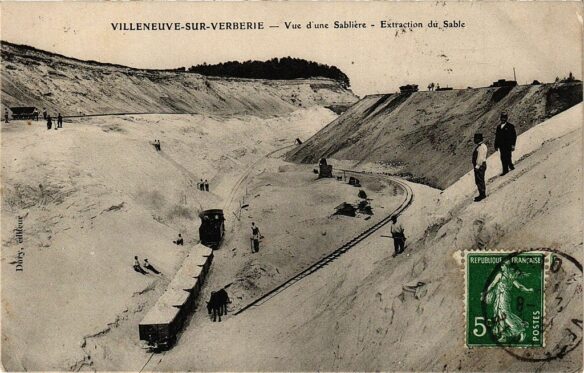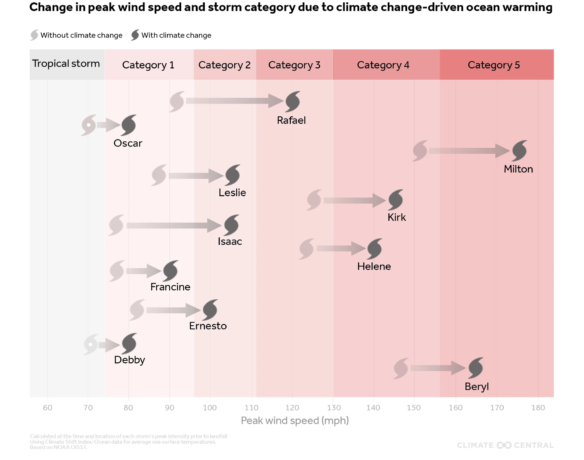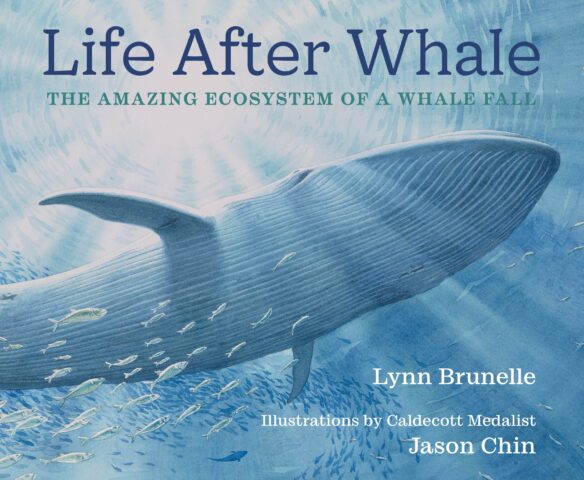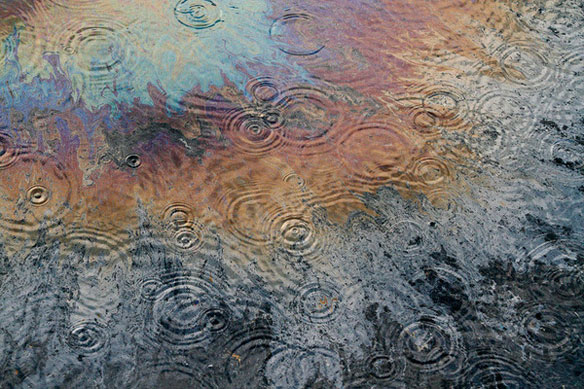
Rain falls on oil sheen. Photo source: Patrick Semansky / AP
By Harry R. Weber, Associated Press
A federal panel investigating the cause of the Deepwater Horizon explosion and massive Gulf oil spill won’t finish its final report by the one-year anniversary of the disaster as it had hoped.
Delays in testing the blowout preventer that failed to stop the spill forced the joint U.S. Coast Guard-Bureau of Ocean Energy Management Regulation and Enforcement panel to seek another deadline extension.
Its final report was due in March. Instead, the investigation team told The Associated Press on Friday the panel now has until July. It will make a preliminary statement by mid-April.
The firm hired to do the blowout preventer testing should issue its findings by March 20. Its $3.6 million government contract for forensic analysis of the device, which was set to expire Monday, has been extended.
Blowout preventers sit at the wellhead of exploratory wells and are supposed to lock in place to prevent a spill in case of an explosion.
The 300-ton device that was used with BP’s blown-out Macondo well was raised from the seafloor on Sept. 4 and taken to a NASA facility in New Orleans, where it sat for two months before testing began Nov. 16.
Since then, investigators have disassembled the device, run hydraulic fluids through parts of it and are preparing to test the pods that control the device to determine if they were functioning properly at the time of the explosion. Cut drill pipe was found inside the blowout preventer, suggesting to investigators that the shear rams at least partially closed at some point.
Shear rams are components in a blowout preventer that cut, or shear, through drill pipe and form a seal against well pressure.
No conclusions have yet been reached about what exactly happened and why oil was still allowed to flow to the sea.
The federal investigative panel expects to hold another set of public hearings the week of April 4 to focus specifically on the blowout preventer findings.

